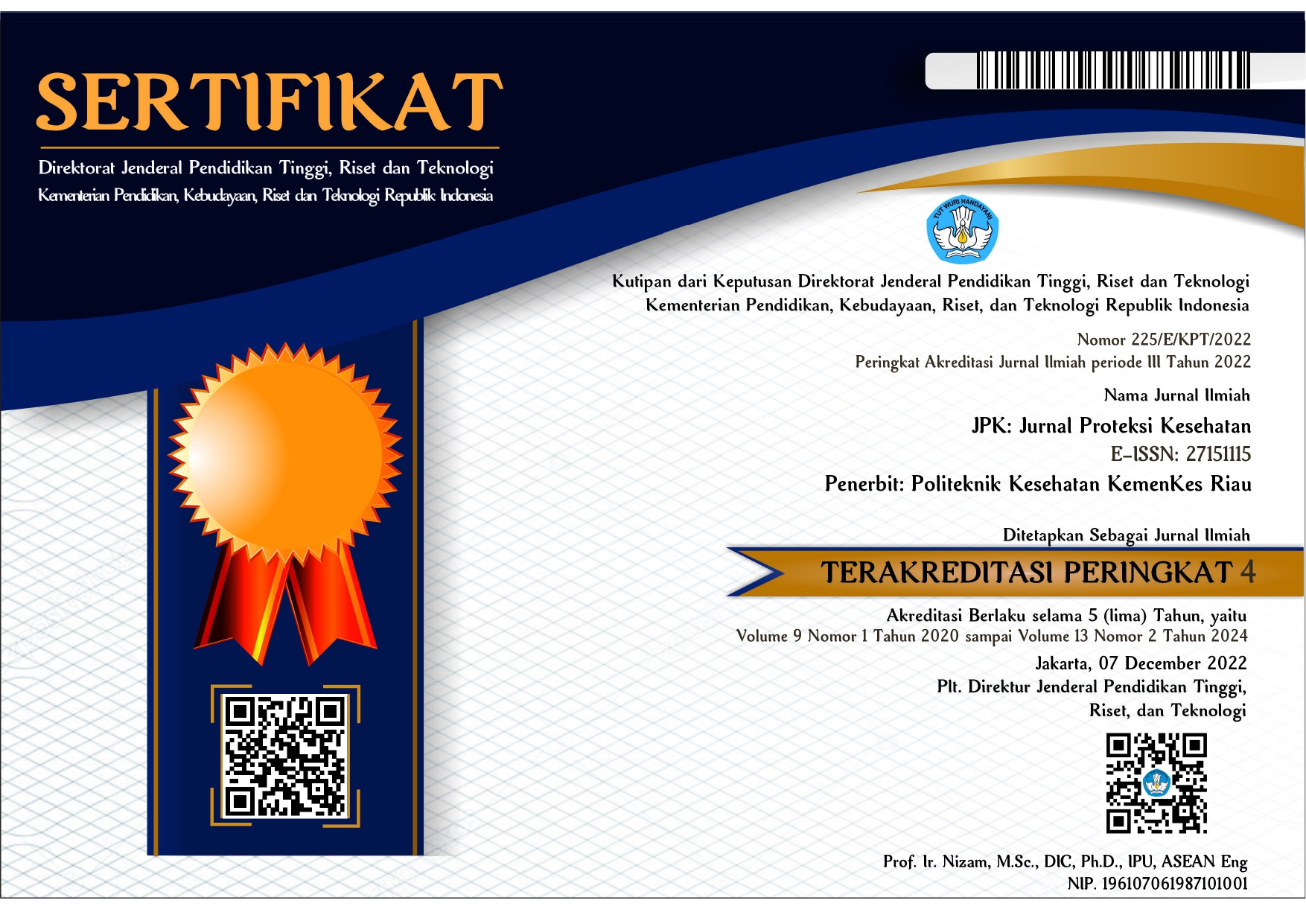Effect of Anticoagulant Use on Coagulation Parameters in Covid-19 Comorbid Diabetic Patients
DOI:
https://doi.org/10.36929/jpk.v13i2.853Abstrak
Coagulation disorders, one of the causes of death of severe Covid-19 patients and comorbidities that also affect coagulation is Diabetes Mellitus. In the guidelines, it is recommended to use prophylactic anticoagulants, namely Unfractionated Heparin (UFH) and Low Molecular Weight Heparin (LMWH) to overcome the problem of this coagulation disorder by paying attention to the value of coagulation parameters, namely, D-Dimer, PT, APTT and platelet values. The purpose of this study was to see the relationship between the use of prophylactic anticoagulants with a decrease / increase in the value of the coagulation parameter. The research design was retrospective pre-post test cohort study with research subjects of comorbid Covid-19 Diabetes patients treated in the ICU of RSUP Dr.M Djamil Padang. As a result, in the group of patients using UFH there was a significant decrease in D-Dimer values (p = 0.001) while the LMWH group was not significantly related (p = 0.05). For the association of anticoagulants with PT values, APTT in both groups was not significant. As for platelet values, there was a significant decrease in the UFH group. Conclusion for severe Covid-19 patients with comorbid Diabetes The use of UFH is recommended as a therapeutic option.















